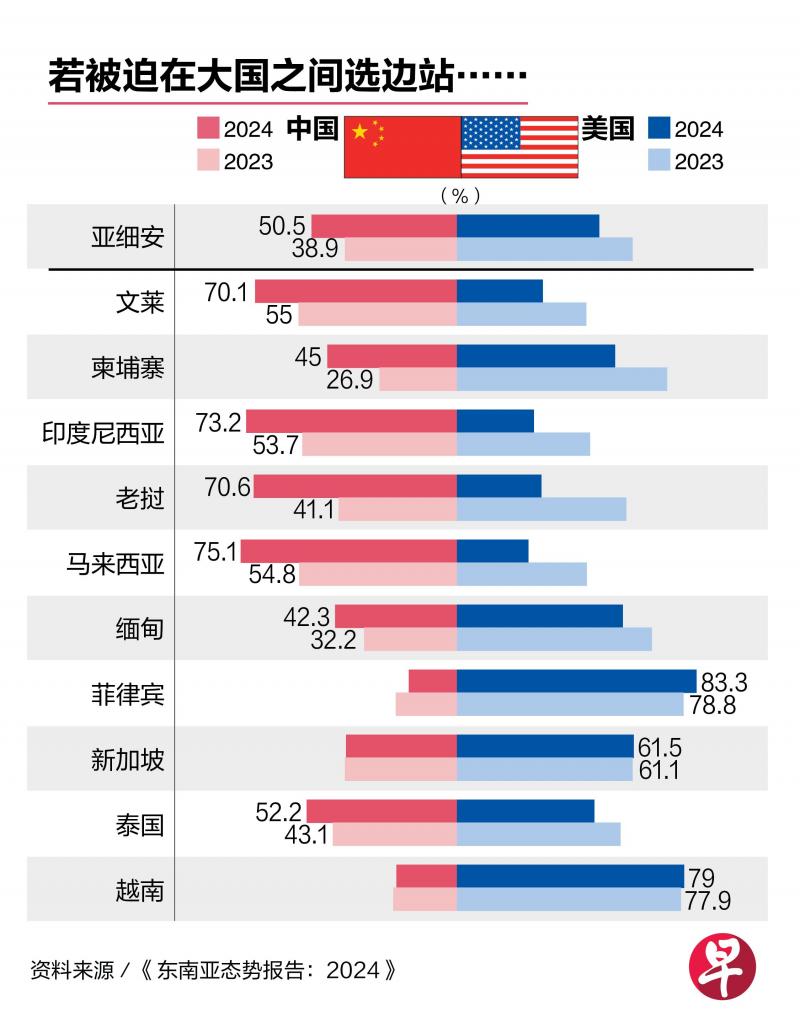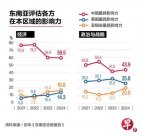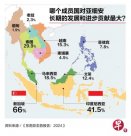
If you are forced to choose between China and the United States, more Southeast Asian interviewees choose China. This is the first time that China ’s favors have surpassed the United States in the Southeast Asian situation survey of the year.But China has a small advantage, only one percentage difference from the United States.
Scholars pointed out that this shows that Southeast Asian countries are disappointed in the United States. Southeast Asia expects the United States to have more contact with the region, including providing greater market access, but the expectations are not realized.
The Iseas Institute of Easov Isaev Issa East South Asia (ISEAS) Asia Finean Research Center released the Southeast Asian situation report on Tuesday (April 2): 2024, for the sixth consecutive year, the view and trust of Southeast Asian intellectual elites in major countries such as China and the United States for the sixth consecutive yearDegree, as well as investigations on geopolitical issues in the region.
A total of 1994 people participated in the investigation from January 3 to February 23 this year.Essence
ISEAS also held an online forum on Tuesday morning, inviting international political experts and scholars such as Bonnie Glaser, director of the Asian Project of the German Marshall Foundation, and Wu Xinbo, Dean of the International Institute of International Issues of Fudan University to interpret the survey results.
The survey results show that if you are forced to choose between China and the United States, 50.5%of the respondents choose China and 49.5%choose the United States.This is the first choice to surpass the United States in China since the investigation was added in 2020.

Wu Xinbo's interpretation, from the perspective of China, China's influence on Southeast Asia has improved in recent years, and the survey results also reflect this trend.This is because China's attention to the region has remained consistent, and the United States' attention is intermittent with different governments.
Selecting the US ratio fell more than 11 percentage points this year
In the survey of last year, 61.1%of the respondents chose the United States, 38.9%chose China, and the ratio of the United States' respondents fell by more than 11 percentage points this year.
Grace analysis, the survey results reflect the disappointment of the region to the United States and expect the United States to improve.
U.S. President Biden in October 2021 proposed the Indo-Pacific Economic Framework (IPEF), trying to repair the regional confidence in US economic leadership.However, the survey showed that the ratio of respondents who actively looked at the framework fell from 46.5%last year to 40.4%, and more people were skeptical of the effectiveness of this framework.
In addition, more interviewees believe that the United States has reduced the participation of regional affairs.The respondents holding this view increased from 25.7 % last year to 38.2 %.This then impacted the confidence of the interviewee's confidence in the United States as a reliable regional security partner. The ratio of the interviewees with only one or no confidence in the United States increased from 32 % last year to 40.1 %.
Grace takes this as an example. At present, the United States has a large number of military existences in the region, but what Southeast Asia wants is different contacts and market access.
Grace also pointed out that in this year's investigation objects, the ratio of interviewees from the business and government fields increased, and the ratio of interviewees from think tanks and academia decreased.the result of.
China Belt and Road Initiative, affected Muslim support for Muslims on the United States
In terms of individual countries, if it is forced to choose between China and the United States, Malaysia, Indonesia and Laos, which have benefited from the China Belt and Road Initiative, further prefer China's trend to be the most obvious.The ratio of Malaysia and Indonesia in China increased by about 20 percentage points.
The performance of the United States after the Harbin conflict also affects the image of the United States in the Muslim world to a certain extent.In this survey, in addition to Indonesia and Malaysia, Brunei, another Muslim population, also presented to China, an increase of more than 15 percentage points from last year.
Wu Xinbo judged when analyzing the impact of Harbin conflict on the region: "To some extent, this conflict damage to the US international reputation is not less than the Iraq war."
As for whether this means that most of the Southeast Asian countries have fell to China, Ke Chengxing, Dean of Lee Kuan Yew Public Policy, who attended the forum of the same field, emphasized that China surpassed the United States for the first time in the border selection station.The beginning of the new trend, but this number sway every year.He reminded that the US selection rate was higher last year, but most of them were maintained at more than 50%before. If you only focused on who across 50%of the boundary line, it was easy to ignore this long -term swing trend.




